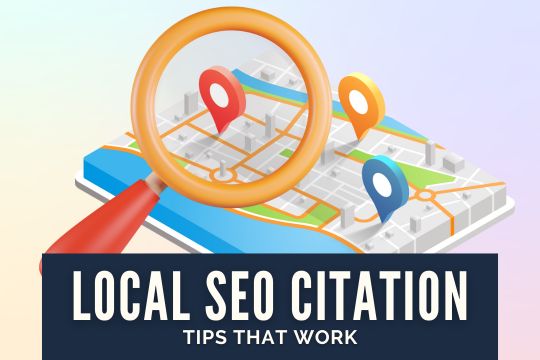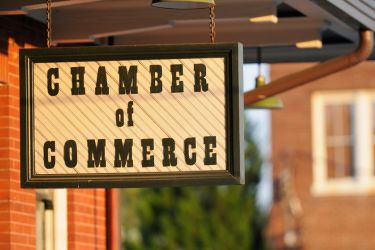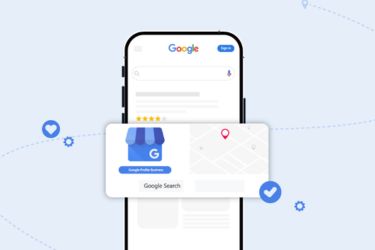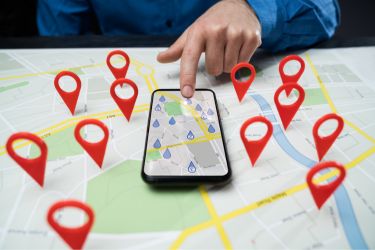
Before digging deep into local SEO citation strategies for small business visibility and how to craft them, let's look at what they actually are. In simplest terms, Local SEO citations are snippets of text that mention your company's information, including the address, contact details, and, frequently, the website. Insiders handily abbreviate "name, address, and phone number" as NAP. What does it take to make these local citations work for your company?
Local optimization relies heavily on these SEO citations. While the business name, address, phone number, and website address are typically all included, some citations also feature hours of operation, business descriptions, reviews, and photos. Getting this information out there is critical to:

How do business owners get their NAP and associated content out there? For many, the local chamber of commerce is the ideal starting point. It lists business members and sometimes gives you access to local business associations and city websites, which you can also use to list your information.
Apple Maps, Meta, Yelp, and Google Business Profiles are almost always included in local SEO citation strategies for small business visibility. Listing business details there is another good option if your type of commerce has specific organizations aligned with it.
The individual listing local citations will need to understand the right approach. It is not uncommon to see mistakes and errors that can have far-reaching consequences. For example, inconsistent NAPs tend to confuse Google. The name, address, and phone number must be identical across all platforms. Abbreviations and punctuation must match. Having multiple people handle the directory listings can easily lead to NAP inconsistencies.
Another mistake is the outdated listing. If your company moved, changed its primary phone number, rebranded, or made any other changes to its details, you must update all listings. Some businesses make the mistake of adding a whole new citation, which then displays the company's outdated and new information side by side. As you may imagine, Google and other search engines may not display the latest details.
Local citation tips urge business owners to set up and optimize their Google Business Profiles (GBPs). These tips are correct. Getting set up is actually easier than you might think.

Structured citations are formal listings on Apple Maps, Bing Places, or the local chamber of commerce. Your NAP is displayed in dedicated fields, making it easy for search engines to crawl and verify. Because of their structure, these citations are trusted, providing the business with excellent backlinks.
In contrast, unstructured citations are the mentions your company receives in the other website's regular content. If the neighborhood newsletter mentions your company's holiday volunteer day, this listing would not feature the structured NAP but instead focus on your company's name, some pictures, and occasionally a press release. Influencers may review your business, or you may receive customer shoutouts on platforms like Nextdoor. These mentions position your brand as an authority. Additionally, they help search engines know you are active.
You need both structured and unstructured citations. Of course, structured citation building is easy because you have complete control over it. Unstructured citations must be earned. You can influence them by issuing press releases, hosting events, or contacting local news outlets with special event information.
We already discussed some elements that go into local SEO citation strategies for small business visibility. But let's look at a step-by-step guide.
Local listing management sometimes means redoing things happy customers tried to do on your behalf. Multiple posters may create duplicate entries for your details. Fix duplicate citations to prevent Google from deleting all. When directories do their own updates, they tend to scrape data from secondary sources, which means that duplicate listings may be deleted, but you may not see the one you put together left in place. As a result, you may have listings with inconsistent NAPs, incorrect business hours, or outdated website addresses.

The more local directories display your company's information, the more your online visibility and credibility improve. High-authority directories like Google Business Profile, Apple Maps Connect, and Yelp are critical for boosting local SEO and for being found by various customer groups. For example, Apple Maps Connect reaches primarily iPhone and iPad users, while Google Business Profile is a must-have for appearing in local searches and on Google Maps.
National directories are ideal for building a larger audience. There is Manta, which is focused on small businesses. Foursquare is a favorite of local app operators, and the chamber of commerce is essential for newcomers to a location. If your business fits a specific niche, ensure your NAP appears there. Zocdoc is for medical services providers, while Avvo is for attorneys. DexKnows lists local businesses, and HomeAdvisor helps local contractors get found.
Apple Business Connect is Apple's version of Google Business Profile. Although focusing on Google is essential, it would be a mistake to leave out Apple. With a listing there, you are visible to MAC users and may also come up in Siri voice searches. Because iPhones dominate mobile search traffic in plenty of markets, it is critical to have your listing there.
Bing Places is Microsoft's business listings platform. Users who prefer Bing, Yahoo, or specific Microsoft devices will find it a good alternative to Google. Having your listing here ensures that you reach the desktop users who prefer to run their searches on computers. Finding ways to connect with all types of internet users via their favorite engagement tools is another critical element for success.
Are you looking to grow your business? Maybe you want to take it international? We have already discussed some of the major directories in the United States. They run the gamut from Google Business Profile to city chambers of commerce. If you plan to expand to Canada, your Google Business Profile is still ideal, but Apple Business Connect and Yelp Canada are necessary. In the UK, add Bing Places and Foursquare UK to your list. It is interesting to note that the Google Business Profile is also germane to overseas countries.

It gets more complex when you have several locations you want to list. Remember that Google sees each location as its own, unique business. Therefore, you must avoid duplicate listings by creating a Google Business Profile listing for each location while maintaining branding integrity. Remember that something as simple as using "Street" vs. "St." can throw off search engine listings. It is a good idea to ask customers leaving reviews to name the specific location they visited. When creating content for your listings, remember to include your location naturally. Remember not to duplicate content across various location listings!
You have multiple locations, want to highlight the differences online, and have local customers find you. Easy? Yes, it can be with a strategy to boost your Maps presence. You already know that the NAP must be identical. Additionally, embed Google Maps in your website pages. Spell out services offered at each location and sprinkle in local keywords and content.
Having already discussed unstructured citations, remember to solicit those to signal the company's local relevance. Website builders caution business owners to create dedicated pages for each location because it supports their Maps presence and citation.
We are now getting a little into the weeds. However, if you have followed all the suggestions outlined, paying attention to the map pack rating makes sense. When discussing your position in the local listing three-pack, Google refers to the map pack. To boost your chances of being found there, your company needs to have:
You can improve your Map Park Ranking by selecting the primary and secondary categories and completing all fields in your Google Business Profile.
Let's complicate it a little more. You can still improve your rankings if you are running a multi-location business. Start with a citation audit for each location. Merge duplicate listings and practice excellent review management for each location. Make your primary and secondary categories germane to the unique locations. Build structured citations for the locations and encourage location-specific reviews on Google Maps. A solid social media presence, including location tagging and location-specific press releases, also helps improve your rankings.
If you are expanding, remember that while Google treats each listing as a unique entity, it will rank your business for consistency and relevance across the various locations.
Throughout this discussion, there is the underlying assumption that you know your way around local SEO, keyword selection, and website design. However, this does not apply to all small business owners who are looking to become more visible.
E-Marketing Associates understands that it may be necessary to take a step back and get more details on small business marketing tips. For example, you may still need assistance growing your business by engaging customers on social media. Perhaps you want to outsource some of these actions to third parties handling the details.
Then again, you may benefit from getting more information via regular newsletters that share the latest SEO insights. Sign up for such a newsletter today!
A local SEO citation is any online mention of your business name, address, and phone number. Search engines use citations to verify that your company is legitimate and located where you claim. Accurate, plentiful citations improve local rankings, build trust with customers, and drive traffic from directories and map results.
When listing your company, always copy the exact NAP from a master document. Match abbreviations, punctuation, and formatting everywhere, including your website footer. Limit access to one responsible person or tool, audit listings quarterly, and update every directory immediately after any change to avoid confusing search engines and customers.
You need both. Structured citations on platforms like Google Business Profile or Yelp offer clear, trusted NAP fields that strengthen ranking signals. Unstructured mentions in articles, blogs, or local news showcase authority and community engagement. Prioritize structured listings first, then earn unstructured citations through events, press releases, and customer outreach.
Start with high-authority, high-visibility platforms: Google Business Profile, Apple Business Connect, Bing Places, Yelp, Facebook/Meta, and the local chamber of commerce. These services feed data to many smaller directories, cover both mobile and desktop audiences, and give you foundational backlinks and map exposure quickly.
Create separate Google Business Profile, Apple Maps, and Bing Places listings for each address using identical brand names and precisely formatted NAPs. Keep a centralized spreadsheet of all logins, audit each location for duplicates, encourage location-specific reviews, and tailor categories and descriptions to the services offered at that site.